5 Signs Your Dog Was Weaned Too Early
Whether you’re a first-time puppy owner or enjoying the puppyhood of a second or third dog, it’s always exciting to bring puppies home.
But for that to happen, your dog must be weaned. It is a natural part of a puppy growing up, but sometimes an unreliable breeder might speed the process up by weaning a puppy early. Of course, weaning a puppy early is not always done for malicious reasons.

After all, there might be more puppies than one dog can reasonably nurse.
Whatever the cause, dogs weaned too early sometimes develop behavioral issues that, while correctable, may give you some initial teething trouble. Here are five signs your dog was weaned too early.
When Are Dogs Weaned?
Usually, mother dogs start weaning their offspring once the puppies are three to four weeks old. When this happens naturally, your dog transitions to puppy food without complication.
Dogs weaned prematurely may exhibit loss of appetite or struggle to eat alternate food. They may even develop weakened immune systems and health problems as a side-effect of early weaning.
These are things responsible breeders strive to avoid. So, what are the signs your dog was weaned too early?

Aggressive Behavior
One of the predominant signs is aggression. Puppies naturally test the boundaries between themselves and you and between themselves and other animals.
That’s why socialization is an integral part of raising a well-developed puppy.
But if your dog was weaned prematurely, that aggression may not stop. If aggression persists despite efforts to discourage the behavior, it may be time to look for a trainer. Scenarios that induce aggressive actions are as stressful for your dog as they are for the people around them.
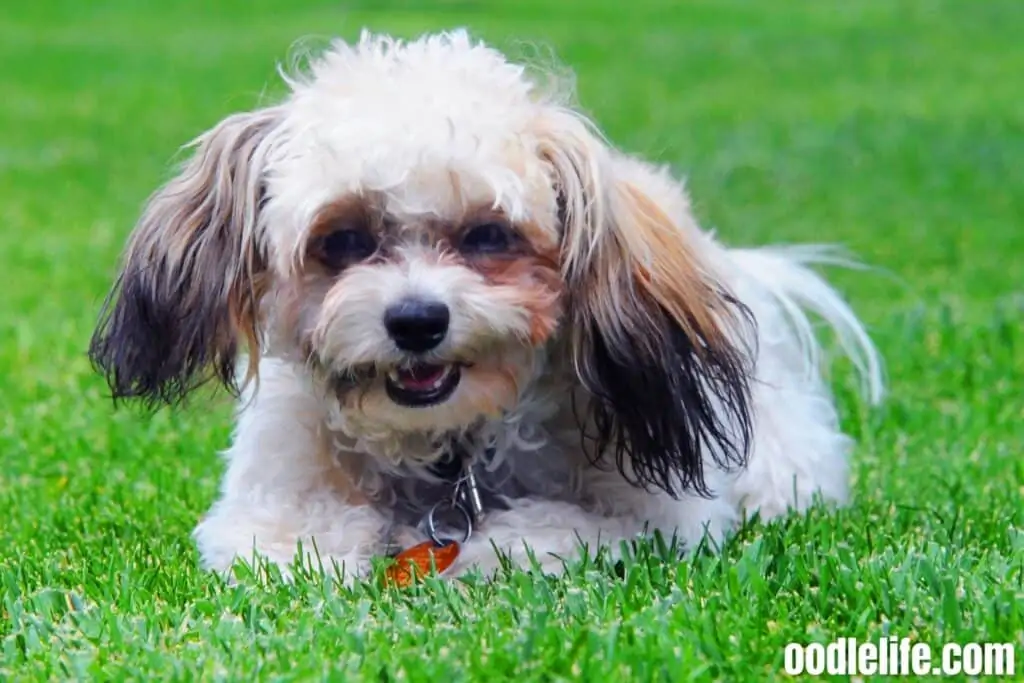
Excessive Biting
Excessive biting is another sign your dog was weaned too early. Like aggression, a certain amount of biting is okay. We belong to two dogs, and when they were young, a favorite pastime was to bite or gnaw on each other’s feet while they figured out who was in charge.
It was cute, but not if it had continued into adulthood.
Puppy teeth aren’t that effective, and it’s tempting to overlook a bit of hand-biting. But if the issue persists after your puppy teethes, it may be a sign that your dog was weaned too early. It also becomes a behavioral problem since adult teeth can inflict more damage than puppy teeth.
But if you indulged in the behavior early on, you may be past the point where positive reinforcement is enough to break the habit. The best way to discourage excessive biting is to reach out to a trainer.
In the meantime, gently but firmly tell your dog no when they try to bite you or other pets in the household. This is crucial because the last thing you want is your excitable young dog getting their teeth into the wrong person.
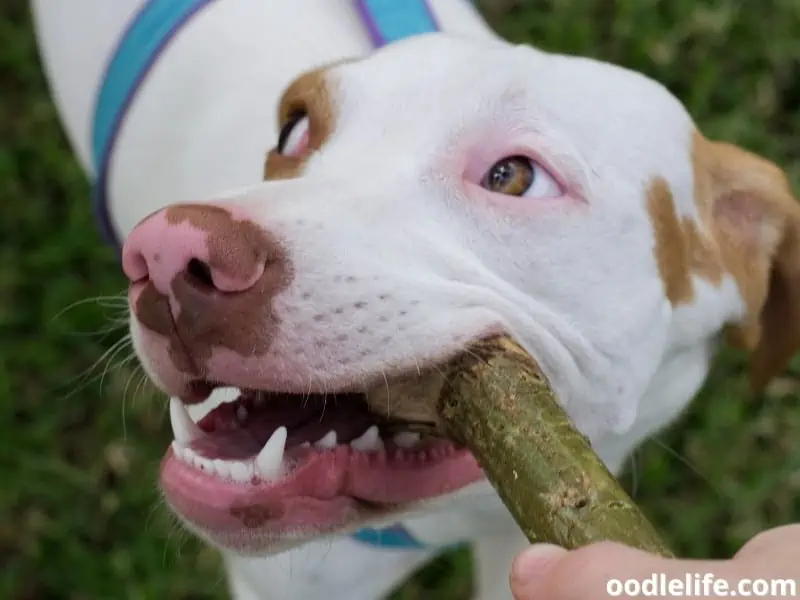
Destructive Behavior
Destructive behavior, especially chewing, is yet another sign of a dog that was weaned too early. One theory is that dogs weaned soon do this to self-soothe because it reminds them of nursing.
But, like biting, this is a sport that quickly loses its charm. Again, early intervention is vital if you want to save yourself replacing everything from watch straps to rugs.
While excessive chewing is a sign your dog was weaned too early, there are other explanations, too. Certain breeds are natural chewers by nature, especially:
- Dachshunds
- Jack Russel Terriers
- Beagles
And, of course, a certain amount of chewing while teething is inevitable. So, when should you become concerned?
Part of this depends on the dog. A typical dog is opportunistic, especially as a puppy. Indeed, they are rarely afraid of seizing on something to chew to alleviate boredom.
That’s fine with a chew toy. However, it can be frustrating if it’s an expensive watch strap or a favorite pair of slippers.
Our rule is that if your dog is still exhibiting inappropriate chewing tendencies after their adult teeth come in, the chewing is excessive. At that point, it may be a sign your dog was weaned too early. Still, provided your dog eats well, that’s a moot point.
What matters is that you find a way to curb their chewing instinct and put boundaries in place they respect.
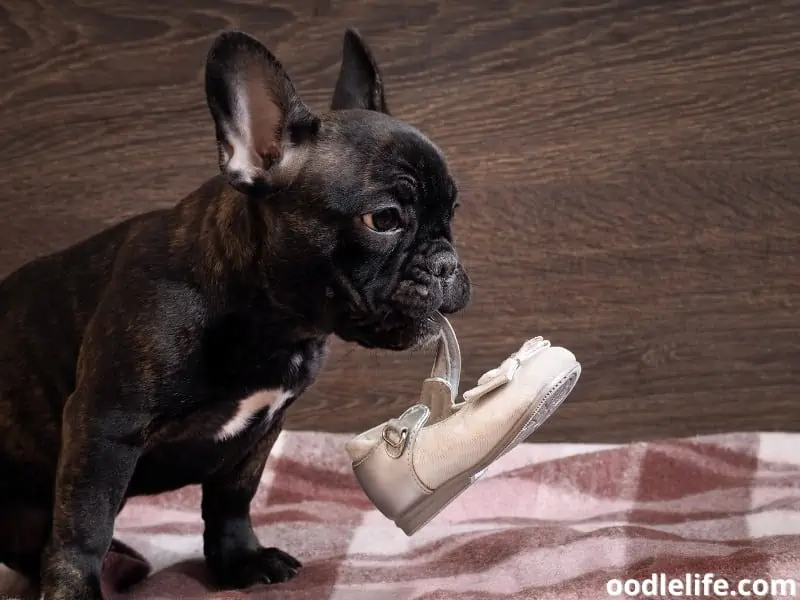
Separation Anxiety
Many things can trigger separation anxiety. For a puppy, it can be a sign they were weaned too early. Typical indications of separation anxiety in puppies include:
- Excessive whining
- Pacing
- Inappropriate elimination
- Inappropriate chewing
A puppy that is weaned too early becomes understandably anxious that you, too, will disappear. Ensuring your puppy has regular contact with you, and other family members can help curb this behavior, as can long walks with a dog walker if you need to leave the house.
Another way to overcome separation anxiety is by using pheromone dispensers like Adaptil. These help your dog acclimatize to their new environment and decrease stress levels and reduce separation anxiety for your pet.
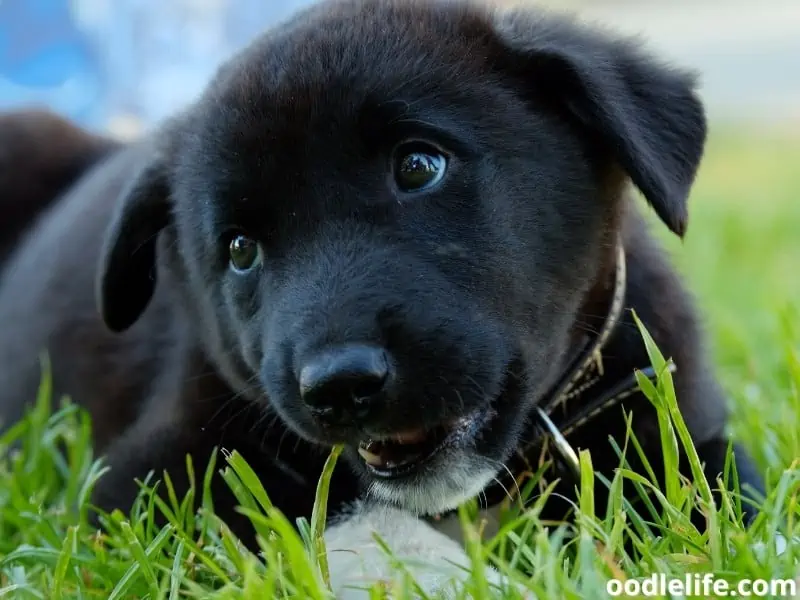
Possessiveness
Like separation anxiety, possession can be a sign that your dog was weaned too early. Classic signs include commandeering a particular toy, even when:
- Eating
- Walking
- Peeing
They may even try to hide or bury their prize to keep you from taking it away.
Sure, that might look sweet can look sweet, but don’t be deceived. If you notice any of these signs, remove the toy immediately. Left untreated, this kind of possessiveness can extend to resource guarding.
In extreme scenarios, it may cause aggression around other dogs.
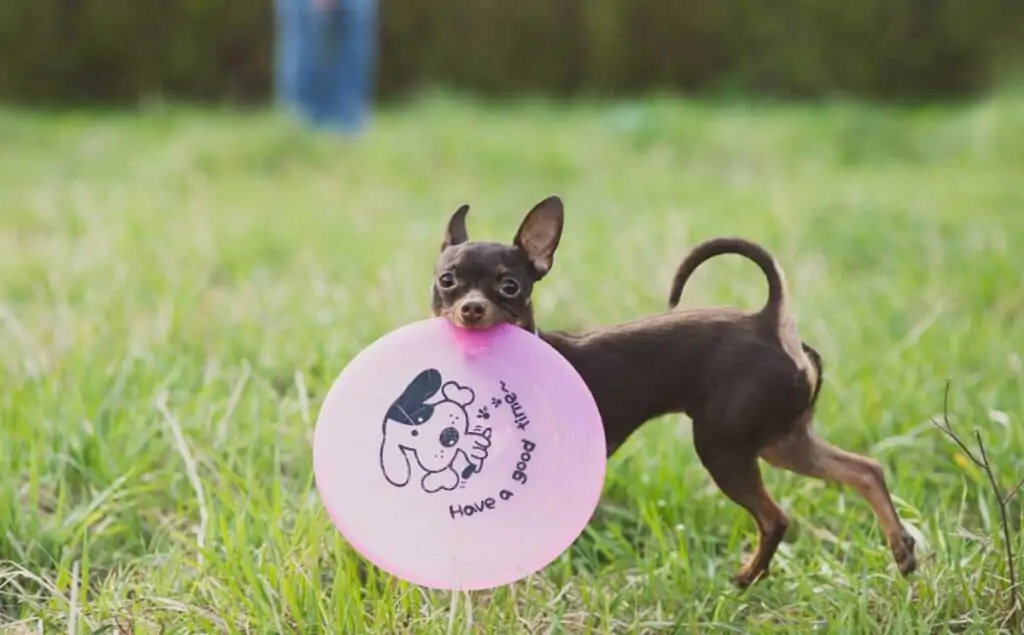
Addressing the Signs Your Dog Was Weaned To Early
So, what do you do with a dog weaned too early?
One of the most effective training methods that help alleviate many of these symptoms is clicker training.
Clicker training is an effective tool in that it trains the dog to respond to a nonverbal cue. This has the advantage of establishing a hierarchy with you in charge. However, it does this without frightening your nervous dog or damaging your relationship with them.
Like many effective training techniques, clicker training requires time and effort. Don’t expect success overnight. That said, if you have a dog that loves their food, you can speed the process along by rewarding good behavior with a treat.

The Bottom Line
There are many signs your dog was weaned too early. These include:
- Possessiveness
- Separation anxiety
- Destructive behavior
- Aggression
- Excessive biting
These behaviors are perfectly normal in moderation. However, if they persist into maturity, it’s typically a sign of premature weaning.
Luckily, the problem is easily treatable. With time, patience, and careful training, you can cure your dog of many of these behavioral issues and watch your furry friend live a long, happy and healthy life.